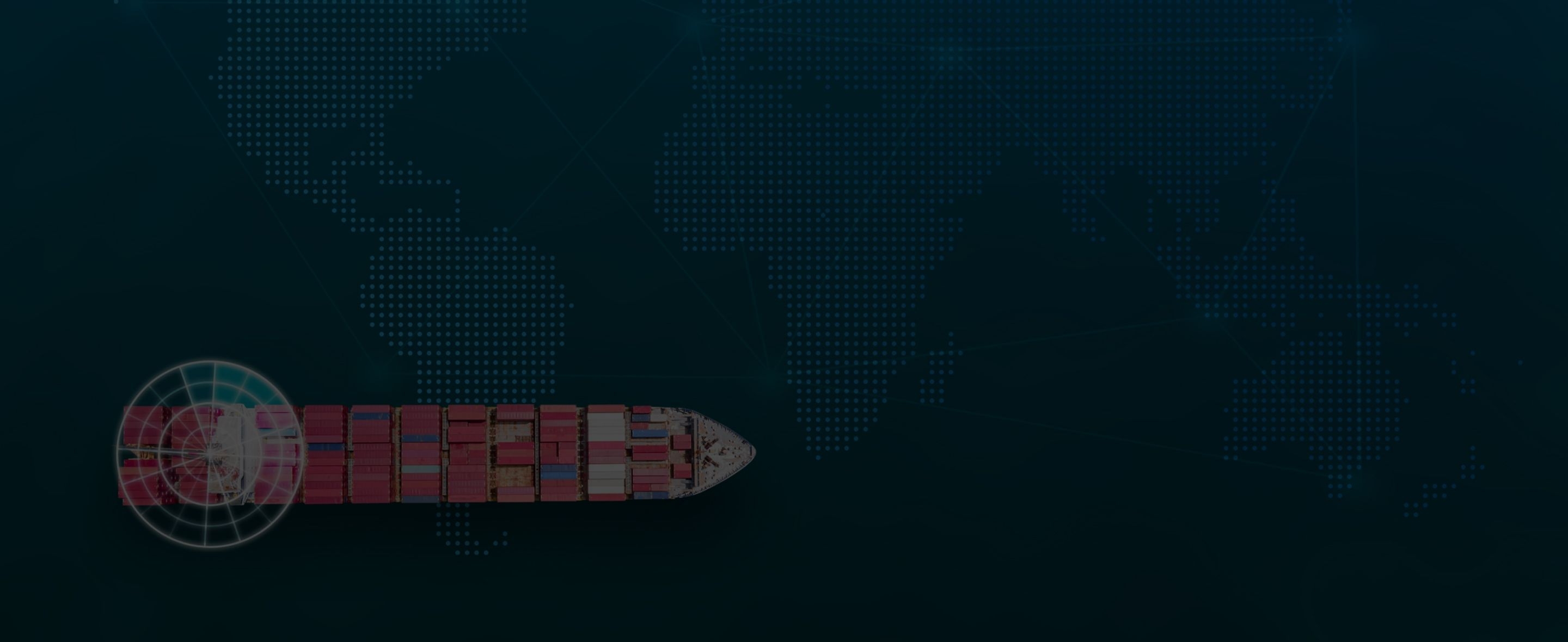
Top 5 articles to understanding digitalization in maritime shipping



Digitalizing maritime shipping
Much has been said about digitalization and its role in maritime shipping. Despite the technological advances over the past decades, the ocean freight remains rather relatively backwards (in comparison with other industries such as airline and hospitality) in the adaptation and adoption of digitalization.
In recent years, however, the industry seems to have woken up to the idea of ‘adapt or sink’ and have made strides in this direction. Calls for the industry to embrace technology are being heeded. Just recently, a collaboration between AB InBev, Accenture, APL, and Kuehne + Nagel successfully tested a blockchain solution aimed at eliminating the need for printed documents such as the Bill of Lading, highlighting the potential of technology in saving the industry hundreds of millions of dollars annually.
“Digital capabilities such as e-commerce platforms can significantly improve traditional customer-supplier experiences. Additional advances in automation, big data and analytics, and the Internet of Things create additional opportunities for substantial gains along the entire industry value chain.”
- McKinsey
The direction ahead has been more or less been mapped, but many details still need to be determined. What is clear, however, is that we will see more institutions and players in the shipping industry adopting technology. An increasing number of startups are entering the market, hoping to ‘disrupt’ the industry by offering a digitized and seamless end-to-end logistics process. As we stand, more than $3.3 billion has been invested in these startups. That said, it’s extremely for us understand the potential of digitalization and where it can take us.
Here is a list of the top five articles you should read to understanding the role of digitalization in maritime shipping.
1. The Digital Imperative in Container Shipping
This analysis by the Boston Consulting Group discusses the various aspects of shipping which were the first to be targeted by digitalization and the importance of having a structured and systematic approach when doing so.
In addressing the potential losers and gainers of shipping’s digital revolution, it talks about the role of the important players in the industry and the advantages they hold.
“One of the strongest threats is from players that are adopting digital technology as the basis for an assetless business model that lets them compete with a much lower cost base.”
The article also highlights the pitfalls, mistakes, and misconceptions in intending to digitalize and how these have proven to be an obstacle. Given the massiveness of the shipping industry and the endless technological possibilities out there, the BCG shortlisted seven digital trends that it considers valuable to the industry.
![]()
2. Ready or not, digitalization on the way for shipping
Will 2018 be the defining year for technology in shipping? This article by IHS Markit appears to suggest so. The industry has witnessed a number of budding technologies over the past few years but there are a select few that have advanced to the start of the line in recent months. These include Blockchain, the Internet of Things, and artificial intelligence.
According to the article, 2017’s technology had a focus on granting visibility and transparency to the logistics chain, allowing for the tracking and tracing of shipments, chassis, etc in real time. IHS reckons this trend will likely persist as technologies continue to improve and get cheaper.
One possible obstacle, as stated in the article, would be the industry’s mindset. Many industry players are still stuck in their traditional way of doing things and still using the telephone and fax to manage paperwork, despite their inefficiencies. Changing this mindset will likely be key to getting more industry players to accept and adopt technology.
3. Digitalization Wave In The Shipping Industry
The shipping industry can’t seem to shake off its intrinsic complexities. According to Marine Insight, this is the reason for which technology seems to have had limited success in the industry [responsible for 90% of world trade]/us/2016/10/28/friday-fun-fact-1-shipping-accounts-for-90-of-world-trade/ “Shipping accounts for 90% of world trade | iContainers”).
Due to this convolution of processes, regulations, players, and their varying responsibilities, there is no one clear software that has been able to tackle all these wide-ranging issues at once. A monopoly situation resulted, which prompted many businesses to move their IT environments to the cloud to avoid having to pay for expensive software. And this, says the article, is where digitalization plays a big role.
“Digitalization will allow the industry to set a new digital framework of how information can or should be exchanged between different counterparties in the future. Many companies out there want to sit in the front row seat during this digital transformation and currently invest in this kind of technologies as everyone wants to ride the digital wave to set new standards of information exchange within the industry.”
4. SAFETY4SEA survey reveals industry’s smart side
This survey conducted by SAFETY4SEA shows the perceptions of the industry to what it calls the ‘smart’ era. According to the survey, Big Data and ECDIS were the technologies that began the digitalization transformation, with autonomous shipping to follow right on its tail.
With this, however, comes new challenges that the industry needs to tackle, including the importance of crew training to adapt to the new technologies and the threat of cyber attacks. The latter shall prove a vital step to the launch of autonomous operations, says the article.
“Autonomous operations will define industry’s future; however, firstly, it is important to address cyber security issues. Although the industry has already been aware of the risks associated with cyber safety and security and progress has been made so far, shipping needs to make further efforts to build awareness.”
One of the largest cyber attacks to affect the shipping industry came last June with the Petya ransomware hitting Maersk. The Danish liner has since said that the attack could cost them up to $300 million in losses. Despite that, SAFETY4SEA’s survey indicates that only 19.8% of the industry have been victims of cyber-attack, with the impact being considered “insignificant” to “minor”.
![]()
5. Digital Transformation: How Will it Change the Seafarer’s Role?
This collection of expert opinions focuses on the role of the seafarer in regards to the current digital transformation hitting the shipping industry and what skills will be needed to adapt.
Unsurprisingly, many listed knowledge and capabilities of managing software as one of the more important skills seafarers must equip themselves with. However, pointing out the fact that automation doesn’t mean unmanned, on-hand skills are still necessary, especially the experience and skill to fix things when technology fails.
Going forward, seafarers with a combination of shipping and technological knowledge will likely set themselves apart from those who have failed to advance.
“Marrying maritime and digital skills is the way to go; and any young person who wants to build a career should make sure to gain and continuously build their competence on technical and commercial capabilities within the digital sphere.”
5 must-read articles to understanding #digitalization in maritime #shipping https://t.co/sPiL71fOwf @BCG @safety4sea @IHSMarkit @KNectMaritime @MarineInsight pic.twitter.com/1jsqSn0WPS
— iContainers (@icontainers) April 3, 2018
Related Articles


